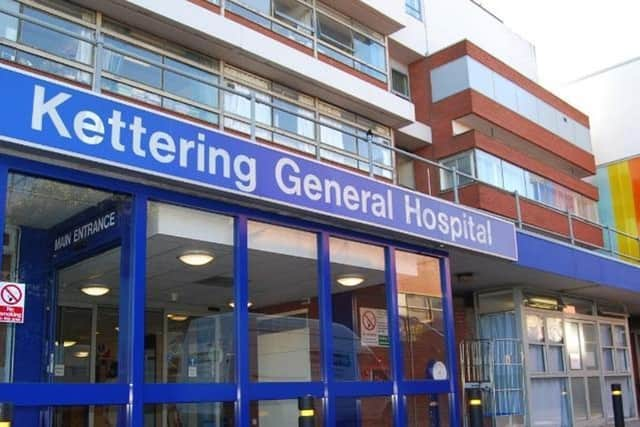Delight as new breast cancer screening unit promised for KGH
and live on Freeview channel 276
The founder of breast cancer charity Crazy Hats says she’s delighted after a new screening unit was promised for KGH.
This week the Government announced £10m in funding to provide 29 new mobile or static units around the country in a bid to speed up diagnosis.
Advertisement
Hide AdAdvertisement
Hide AdAnd a breakdown released by the Department for Health says one of the 13 new static units will be at the Rothwell Road hospital.


Glennis Hooper was diagnosed with breast cancer and had surgery at KGH in the summer of 2001 with follow-up treatment at Northampton General Hospital and Leicester Royal Infirmary. She launched the Crazy Hats Appeal later that year and helped raise almost £3.5m for breast care locally before the charity closed in 2021.
Glennis, who recently cut the turf to start work on a long-promised new waiting area, said of the announcement: "It's excellent news, it really is.
"Having this unit will make things easier for people to have a screening and that can only be a good thing.
Advertisement
Hide AdAdvertisement
Hide Ad"We always say to women and men to know your own body. If you feel anything is amiss, or feel a lump, do not hesitate to go to your doctor."
The hospital, which is also in line for live remote access upgrades, has been contacted for comment.
Minister of State for Health Helen Whately MP said: “Catching cancer early saves lives. Last year 100,000 people were diagnosed with cancer at stages one and two. This is the highest proportion on record but we want to do better still.
“These breast cancer screening units will mean more people can get checked for cancer, closer to home.”
Advertisement
Hide AdAdvertisement
Hide AdSteve Russell, NHS national director for screening and vaccinations, said: “This funding will help increase screening rates amongst women from communities and regions where uptake is lowest by improving facilities in both fixed and mobile locations, making it easier for more women to get checked, and we encourage anyone invited for a screening to take up their appointment without delay and help us catch cancers earlier when they are easier to treat.”